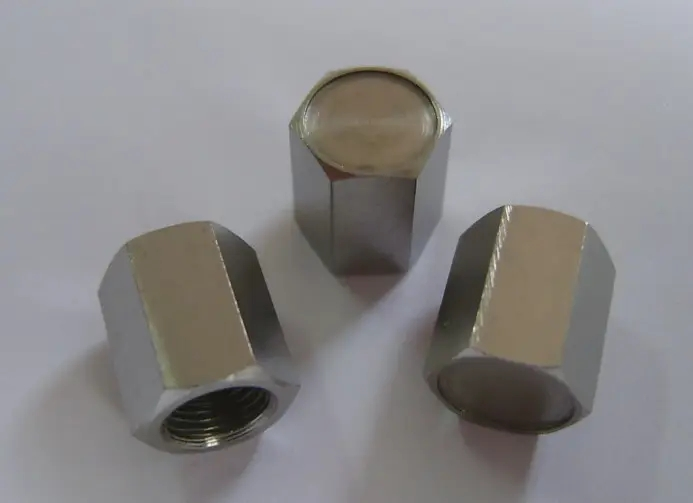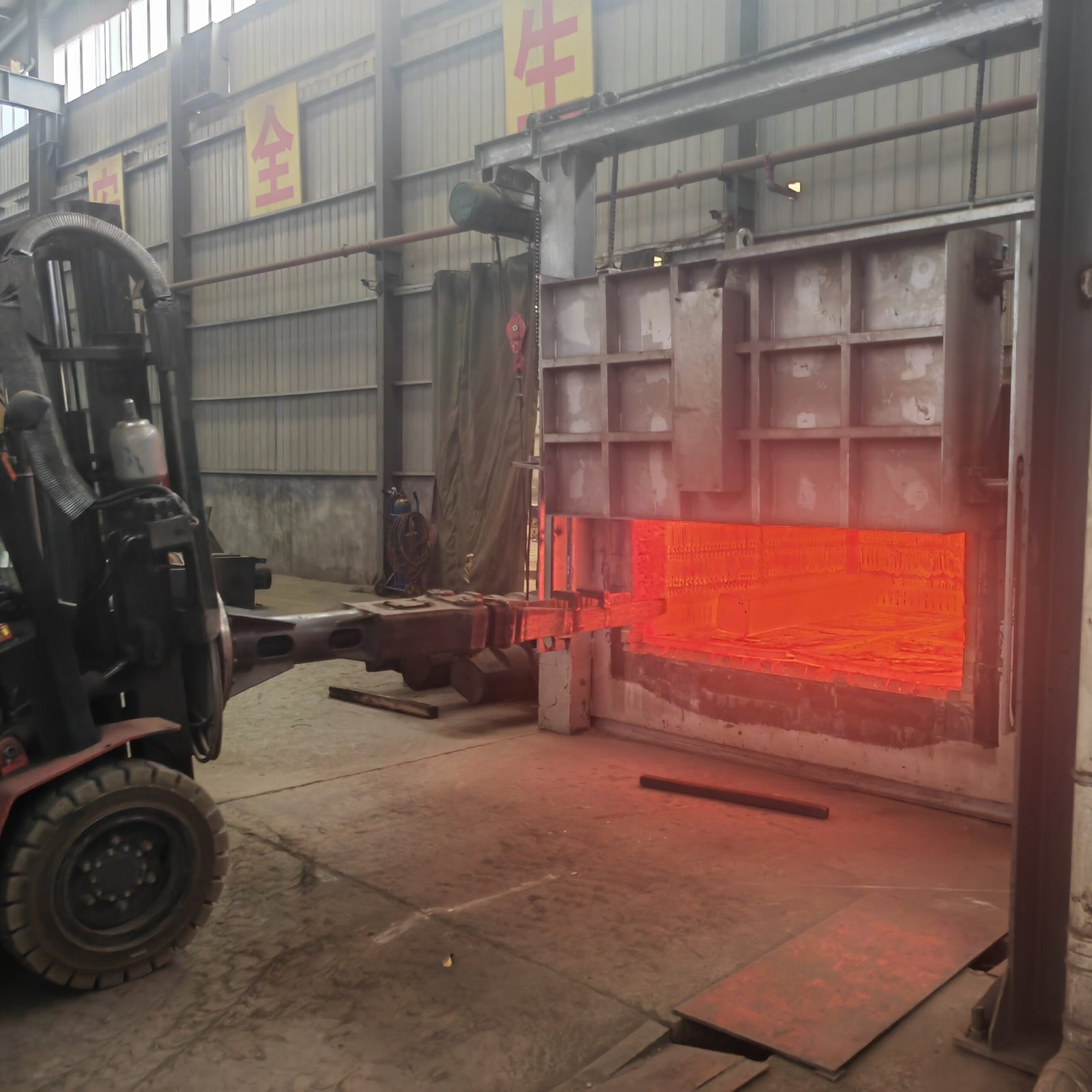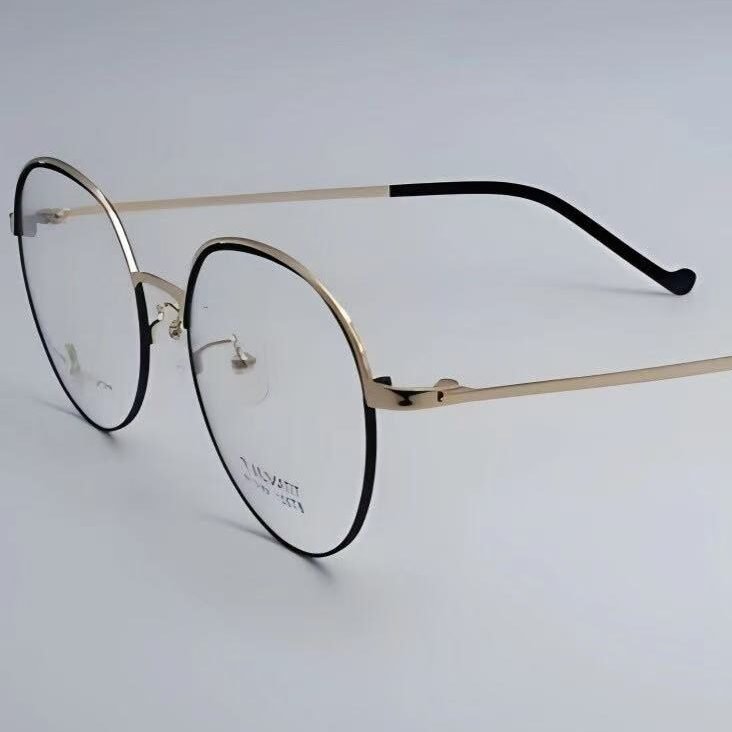In modern industry, traditional metal fasteners have reached performance bottlenecks in many applications, while titanium alloys have gradually become the preferred material in fields such as aerospace and automotive due to their excellent properties such as high strength, low density, and corrosion resistance. The introduction of cold forming technology has elevated the performance of titanium alloy fasteners to new heights. As an efficient and precise processing method, cold forming significantly impacts the enhancement of titanium alloy fastener performance.
At Young Things Metal Co. Ltd., a medium-sized enterprise located in Baoji, China, we have embraced the integration of cold forming technology in the production of our titanium alloy fasteners. This approach has enabled us to enhance the performance and reliability of our products, particularly in demanding fields like aerospace and automotive.
1.What is Cold Forming?
Simply put, cold forming is the process of plastic deformation of metals under enormous pressure without heating. Imagine molding clay into various shapes using molds. Cold forming operates on the same principle, but with metals and in a more precise manner. The advantage of this technology lies in maintaining the original excellent properties of the metal without significant changes to its internal structure.
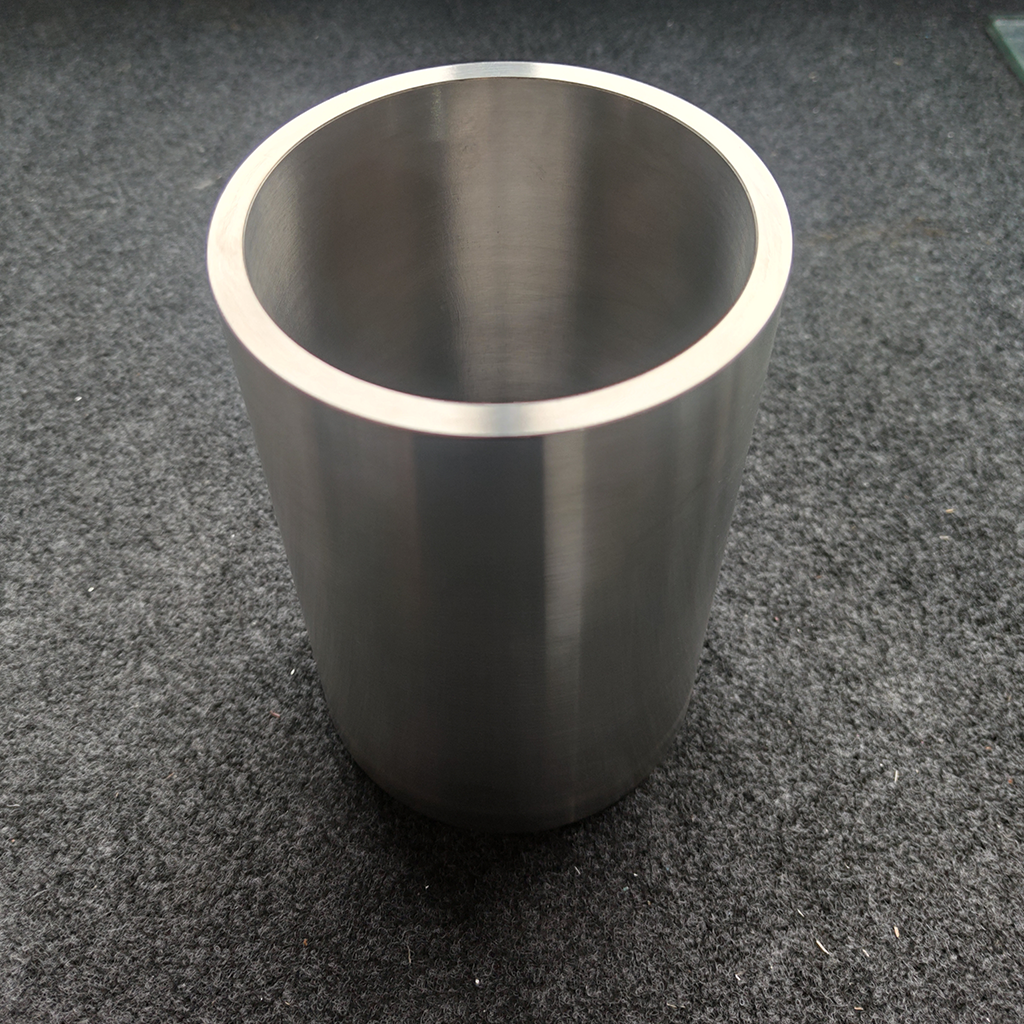
2.Titanium Alloys and Cold Forming Integration
Titanium alloys stand out among numerous metal materials due to their outstanding performance. The perfect combination of high strength and low density makes them the preferred choice in aerospace, medical devices, and other fields. Titanium alloys exhibit excellent corrosion resistance, particularly in harsh environments such as seawater and acidic conditions. Moreover, titanium alloys possess good biocompatibility and are widely used in medical implants.
Cold forming technology, as an advanced metal processing technique, complements the characteristics of titanium alloys. By subjecting titanium alloys to plastic deformation at room temperature or below recrystallization temperature, a series of significant advantages can be achieved:
- Grain refinement: During cold deformation, the grain size inside titanium alloys significantly decreases. Fine grains effectively inhibit dislocation movement, thereby significantly enhancing the material’s strength and toughness, improving the crack resistance of fasteners. For example, bolts on offshore drilling platforms endure immense alternating loads, and this treatment helps them better withstand such harsh conditions.
- Residual stresses:Cold deformation creates beneficial residual compressive stresses inside the material. These stresses can counteract applied tensile stresses, thereby enhancing the fatigue life of fasteners and extending their service life. For instance, in marine environments, titanium alloy fasteners are subjected to alternating seawater corrosion and wave impacts, and residual compressive stresses can effectively delay fatigue crack propagation.
- Densification: During cold deformation, internal voids and defects in the material gradually close, improving material density, reducing stress concentration, and enhancing the corrosion resistance of fasteners. This is crucial for fasteners operating in marine environments or corrosive media, such as bolts on ships and chemical equipment.
- Processing of complex-shaped parts: Cold forming technology can process complex-shaped parts, meeting the modern industrial demand for product diversity.
The combination of titanium alloys and cold forming technology achieves a synergistic effect where 1 + 1 > 2. The excellent properties of titanium alloys provide high-quality raw materials for cold forming, while cold forming technology further enhances the mechanical and processing performance of titanium alloys. This strong alliance unleashes significant application potential for titanium alloy fasteners in aerospace, automotive, medical, and other fields.
In summary, the unique advantages of titanium alloys and the advanced nature of cold forming technology jointly promote the improvement of titanium alloy fastener performance. These new types of fasteners exhibit excellent properties such as high strength, corrosion resistance, and fatigue resistance, ensuring product quality while reducing weight and enhancing efficiency. Young Things Metal Co. Ltd. specializes in producing titanium alloy fasteners that benefit from the synergy between high-quality titanium materials and advanced cold forming processes. Our focus on grain refinement, residual stress management, and densification ensures that our fasteners meet the rigorous demands of industries such as marine engineering and chemical processing.In the future, with the continuous development of materials science and processing technology, titanium alloy fasteners will play an increasingly important role in various fields.
3.Impact of Cold Forming on Titanium
Cold forming technology plays a crucial role in the manufacturing of titanium alloy fasteners, significantly enhancing not only the mechanical properties of the products but also their overall structural strength and durability.
3.1 Enhancing Mechanical Performance and Structural Integrity
Cold forming improves the tensile strength and fatigue life of titanium alloy fasteners by optimizing crystal structure and eliminating internal defects, typically increasing by about 30% . Moreover, residual compressive stresses generated by cold deformation effectively delay the initiation and propagation of cracks, significantly enhancing the fatigue life of fasteners (Table 1 compares the mechanical properties of titanium alloy fasteners before and after cold deformation). When cold-formed fasteners are employed in aerospace engine components, they exhibit outstanding durability and safety under prolonged high-temperature and high-pressure conditions.
3.2 Improving Surface Quality and Corrosion Resistance
Metal flow and surface treatments during cold forming result in smoother and more uniform surfaces of fasteners, reducing microcracks and surface defects, thereby enhancing their corrosion resistance in harsh environments. For instance, fasteners used in marine engineering demonstrate excellent resistance to seawater corrosion after cold forming treatment.
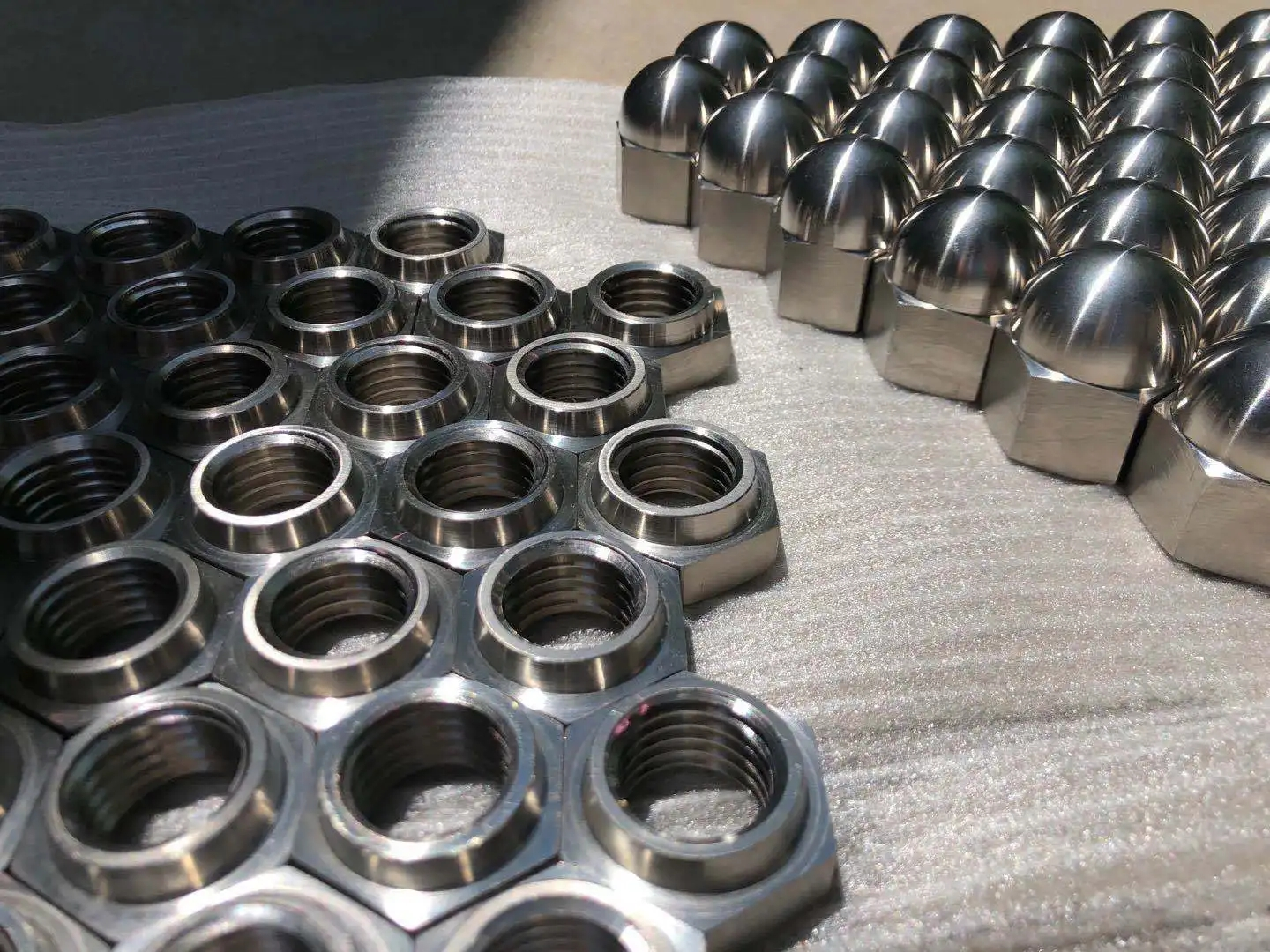
3.3 Environmental Adaptability and Cost Efficiency
Cold forming technology eliminates the need for high-temperature treatments, effectively avoiding potential thermal stress issues in materials, improving the stability and reliability of fasteners, and reducing overall manufacturing costs. For example, in automotive manufacturing, cold-formed fasteners reduce material waste and processing time, significantly enhancing production efficiency.
| Performance Indicator | Without Cold Deformation | Cold Deformation (50%) |
|---|---|---|
| Tensile Strength (MPa) | 800 | 1050 |
| Fatigue Life (cycles) | 10000 | 25000 |
| Plasticity (%) | 15 | 10 |
Table 1: Impact of Cold Deformation on Mechanical Properties of Titanium Alloy Fasteners
Young Things Metal Co. Ltd. has developed effective strategies to manage the challenges of machining titanium alloys during cold forming. We utilize highly wear-resistant tools and specially designed lubricants to extend tool life and ensure the precision of our fasteners. Additionally, our careful control of process parameters helps maintain the quality and consistency of our products, even when dealing with complex geometries.
4. Titanium Alloy Fastener Cold Forming Technology: Innovations and Future Prospects
4.1 Integration of Materials Science and Process
The development and optimization of titanium alloy materials are crucial for the successful application of cold forming technology. Further exploration can focus on the following directions:
Development of Novel Titanium Alloy Materials:
- Explore compositions and structural designs of new titanium alloys to meet demands for high strength, corrosion resistance, and lightweight properties.
- Study the effects of alloying elements such as aluminum, iron, nickel, etc., to enhance the mechanical performance and corrosion resistance of materials.
Integration of Cold Forming Processes and Material Optimization:
- Analyze the impact of different cold forming processes on the mechanical properties of various titanium alloy materials, including tensile strength, plasticity, and fatigue life.
- Optimize cold forming process parameters such as temperature, pressure, and deformation rate to maximize material mechanical performance and shape accuracy.
Application of Simulation and Prediction Techniques:
- Use Computer-Aided Design (CAD) and virtual simulation technologies to predict stress distribution and deformation behavior during cold forming processes.
- Utilize numerical simulation tools to optimize material processing routes and cold forming process flows, reducing experimental costs and time.
4.2 Intelligent Manufacturing and Digital Technology
The introduction of intelligent manufacturing and digital technology plays a critical role in optimizing and controlling cold forming processes. Future developments can focus on the following aspects:
Internet of Things (IoT) Applications in Cold Forming Manufacturing:
- Deploy sensor networks to monitor equipment and process parameters, collecting and analyzing production data in real time.
- Achieve equipment condition monitoring and remote fault diagnosis to enhance production equipment reliability and utilization.
Artificial Intelligence (AI) Optimization in Cold Forming Processes:
- Utilize machine learning algorithms to analyze big data sets for optimizing cold forming process parameter settings.
- Develop smart control systems to adjust process parameters based on real-time data, enabling adaptive production and continuous improvement.
Data-Driven Decision Making:
- Establish a data analytics platform to collect data from multiple production stages, providing comprehensive analysis of production efficiency and product quality.
- Implement data-driven decisions to optimize resource allocation, process flows, and quality control strategies, enhancing production efficiency and competitive advantage.
5. Challenges and Responses
5.1 Material Characteristics and Processing Difficulties
Titanium alloys are widely used in high-tech fields due to their high strength and low density. However, their poor machinability is primarily reflected in increased tool wear and processing difficulties. The high hardness and corrosion resistance of titanium alloys lead to tool wear during cold forming processes, increasing production costs and the frequency of processing adjustments. Moreover, their high chemical reactivity makes them susceptible to unexpected squeezing or cracking during processing, impacting product quality and stability. To overcome these challenges, the following measures can be implemented:
- Use of Highly Wear-Resistant Hard Alloy Tools and Specially Designed Lubricants: Reduce friction and wear between tools and titanium alloys to extend tool life.
- Precise Control of Process Parameters: such as Temperature, Pressure, and Deformation Rate during Cold Forming: Avoid excessive processing parameters that could damage tools and materials while ensuring geometric precision and surface quality of products.
5.2 Design Complexity and Process Optimization
Titanium alloy fasteners often require complex geometries and specific functional requirements such as high strength, lightweight, and corrosion resistance. Challenges between design and processing mainly manifest in the complexity of the process flow and stress distribution in materials. Designing complex shapes may lead to stamping or deformation issues during processing, hence maintaining product stability and reliability in process optimization is crucial. To address these challenges, consider the following measures:
- Utilization of Advanced CAD Software for Simulation and Design Optimization: Predict and analyze stress distribution and deformation during processing, optimizing structural design and material selection.
- Design of Dedicated Cold Forming Dies: Ensure geometric precision and structural integrity of complex-shaped fasteners during processing, minimizing adverse effects.
5.3 Material Waste and Recycling
Material waste and scraps may occur during cold forming processes, especially for complex-shaped fasteners, posing challenges for effective material recovery and processing. This involves cost control, environmental protection, and sustainable development considerations. To address these challenges, consider the following measures:
- Maximize Utilization of Waste Materials: Including scrap recovery, chemical treatment, heat treatment, and mechanical reprocessing to manufacture reusable raw materials.
- Precise Control of Processing Parameters:Optimization of Die Design, Recycling, and Energy Recovery:Reduce waste generation, improve production efficiency, and material utilization rates.
5.4 Precise Control of Process Parameters
Cold forming technology requires precise control of process parameters such as temperature, pressure, and deformation rate. These parameters directly influence product quality and consistency, necessitating advanced equipment and precision process control technology to ensure process stability and excellent product quality. To address these challenges, consider the following measures:
- Advanced Control Systems:Equipped with advanced automation control systems and sensors to monitor and adjust process parameters in real-time, ensuring process stability and consistency.
- Optimization of Dies and Equipment:Enhance uniform distribution of temperature and pressure, reducing product deformation and defects.
As cold forming titanium alloy fasteners become a crucial component of advanced manufacturing industries due to their outstanding performance and wide-ranging applications, we witness not only advances in materials science and manufacturing technology but also contemplate their profound impact and future development directions. With the development of new materials and innovative process technologies, the applications of titanium alloy fasteners in aerospace, medical, and high-end engineering fields will further expand. This necessitates continuous optimization of existing processes and ongoing exploration of new manufacturing methods and material combinations to meet increasingly complex and stringent market demands. Therefore, as one of the key processes enabling efficient and precise production, cold forming technology will continue to play a significant role in the future manufacturing industry, injecting sustained innovation and possibilities into global industrial development.As we continue to refine our cold forming processes and expand our offerings, Young Things Metal Co. Ltd. remains dedicated to delivering high-performance titanium fasteners that meet the demands of modern industry. We invite you to explore our product range and discover how our commitment to quality and innovation can benefit your projects. Visit our website to learn more.
Share this article
Written by : 钛合金网
Follow us
Table Of Content

